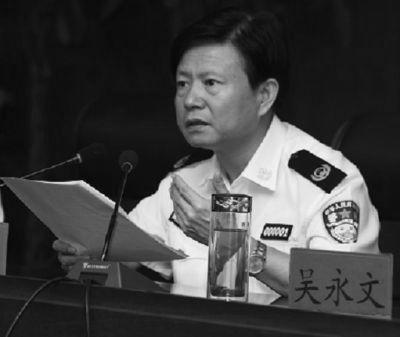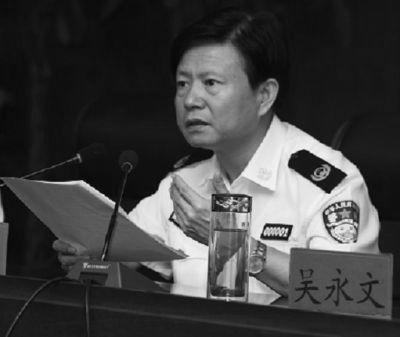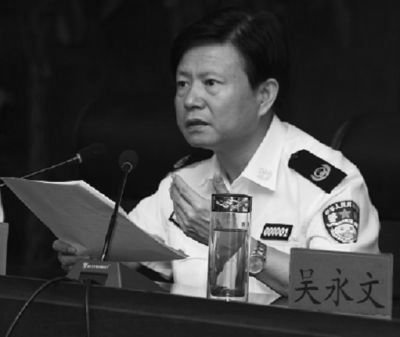An associate of the former chief of the Chinese communist regime’s security apparatus was taken into custody for interrogation recently, according to Chinese media reports.
Wu Yongwen, a former secretary of the Political and Legislative Affairs Committee (PLAC) of Hubei Province, was put under a Soviet-era style interrogation process called shuanggui, according to some reports in the Chinese press. Shuanggui is used for Party officials who are suspected of “violating discipline,” which encompasses a range of infractions, including insubordination and corruption.
While there has been a spate of arrests of corrupt Party officials in China recently, Wu’s downfall is noteworthy because of his ties to Zhou Yongkang, who until recently was one of the most powerful officials in China.
Zhou was since 2007 head of the PLAC in the central government, a committee that oversees the Chinese regime’s large labor camp and prison system, as well as its regular, secret, and armed police forces, and an extensive network of spies. It manages a budget of over $100 billion. Zhou Yongkang was a close ally of former Party leader Jiang Zemin, and his position as head of the PLAC ensured Jiang’s continued authority in the Party.
Wu accompanied Zhou during the latter’s inspection tour of Hubei in April of last year, and gave speeches about vigorously following the spirit of Zhou’s security policies; he was generally seen as a trusted confidant to Zhou.
At the time of his reported arrest, Wu held a string of official positions high up in the state and Party power structure in Hubei.
Though the news of Wu’s detention was reported in some Chinese media outlets, there did not appear to be an official announcement in the Party’s propaganda organs. An item appeared in China Daily, but later seemed to have been deleted.
Phoenix, the Hong Kong-based broadcaster, announced the news by saying, “In Hubei Province’s list of the 12th People’s Congress ... Wu Yongwen’s name was not among them.”
Wu had been the deputy director of the standing committee of the Hubei People’s Congress. According to Phoenix, a deputy minister on that standing committee, which effectively represents the Congress, said that they had received no official notice of Wu’s detention. He said that Wu did not show up for work Monday, though.
The news that Wu was put under shuanggui appears first to have been reported by Ta Kung Pao, a Hong Kong newspaper that also prints in China, and which is widely understood to be the Party’s mouthpiece in Hong Kong.
Ta Kung Pao said Wu was being investigated for “exchanging power for money, keeping mistresses, and leading a corrupt lifestyle among a series of other problems.”
There may be more to the move against Wu than straightforward corruption issues, however. The detention comes at a time when the PLAC, which Wu represented is being put under much closer public scrutiny, and after its power was downgraded during the leadership transfer last November. A recent forum on the rule of law held by Caijing magazine in Beijing featured legal experts openly criticizing the workings of the communist regime’s opaque and violent security system.
Most recently Xi Jinping’s subordinate Meng Jianzhu announced that the system of concentration camps across China—officially known as “re-education through forced labor”—would be either stopped or reformed. That system had for the last decade been a crucial tool for former leader Jiang Zemin and his aide Zhou in pursuing the persecution against the Falun Gong spiritual practice, started in 1999, as well as the persecution of other groups labeled as obstacles to what the Party calls “maintaining stability.”
Signaling again the apparent waning of Jiang’s influence over Chinese elite politics was the order of his appearance in the line of officials who came to pay respects to a dead communist military cadre recently. The order of names of high-level officials is closely tied with their influence in the regime. At a similar event last year, and as is generally the custom, Jiang was third in line. This time, he was last.
With research by Yoshen Chen.
The Epoch Times publishes in 35 countries and in 21 languages. Subscribe to our e-newsletter.







